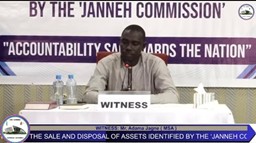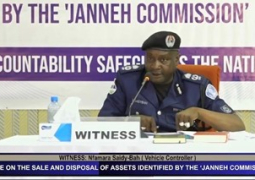
“You mean the dismantling started before authorization?” Counsel asked.
“Yes,” Jagne replied, but we were under pressure to clear the yard.”
Counsel demanded names, but Jagne hesitated. “I can’t say much,” orders came from above.”
Counsel reminded him that failure to disclose full details could amount to contempt of parliament; a charge that carries both legal and professional consequences.
“You cannot hide behind orders from above. You are a public servant, not a private mechanic.”
Government vehicles that were meant to be auctioned or reassigned were instead stripped of key components - engines, gearboxes, and batteries rendering them worthless. The parts, some lawmakers alleged, were later sold off privately.
Jagne denied profiting personally but conceded that he could not account for what happened to the removed parts. “We just did what we were told,” he repeated.
Jagne invoked the name of the late Mr Fadera, a powerful State House official who had reportedly called him on the eve of the dismantling. He claimed the call was “personal”, yet it raised fresh questions about who truly sanctioned the vehicle operations.
“The late Mr Fadera was not just anyone,” a counsel remarked. “If he was involved, this goes far beyond the workshop.”
Read Other Articles In Headlines





